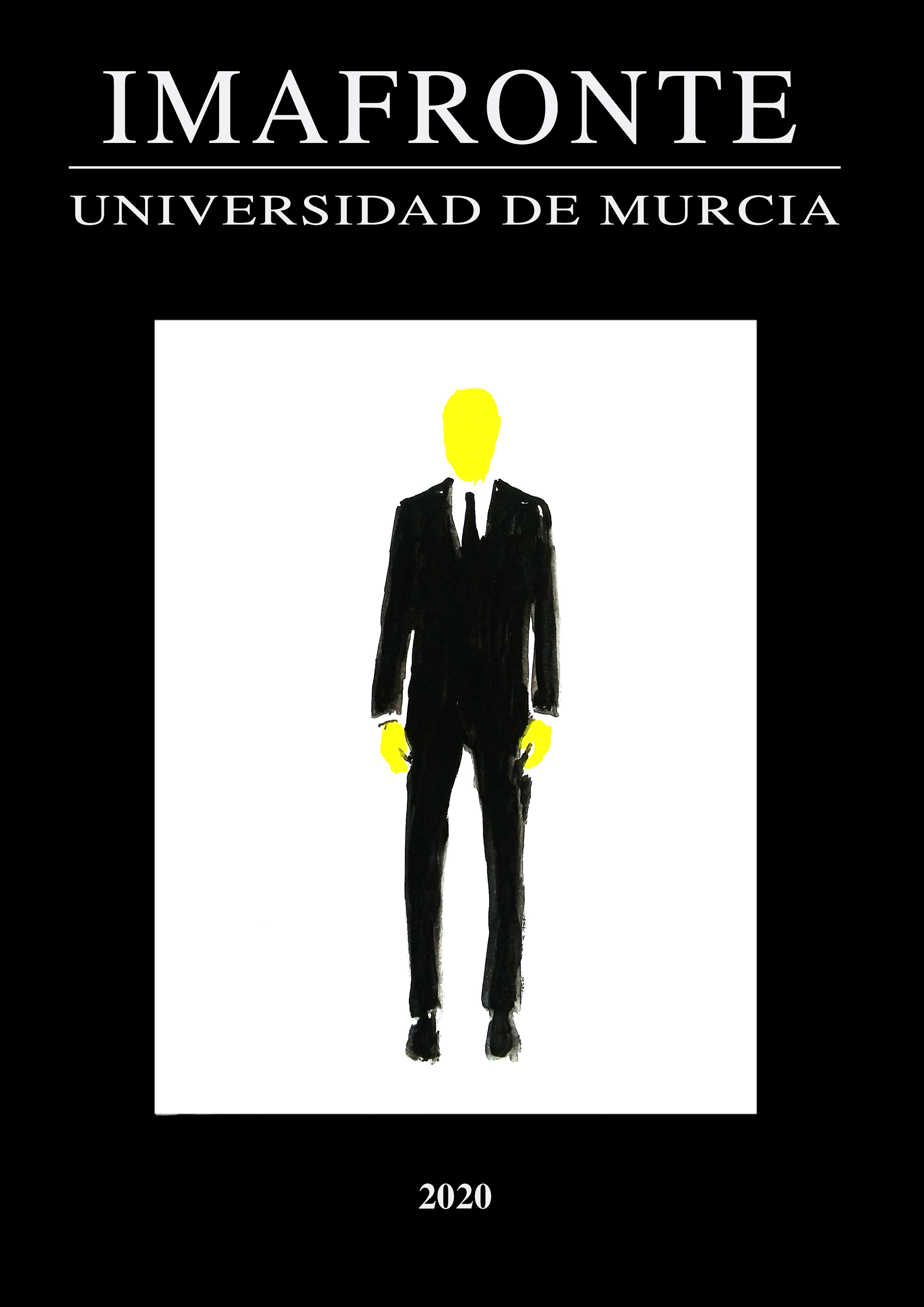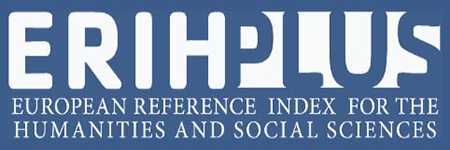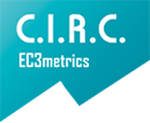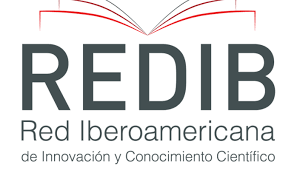Metaphors and evocations in the titles of Angélica Liddell's plays
Abstract
This article analyses the meaning of the titles of the most representative plays of the spanish playwright, director and actress Angélica Liddell. With a case study methodology, some of the titles from 1991 to 2018 are analyzed from a hermeneutic perspective. Each of the titles is taken as small units of information, and have been analyzed and classified in five main sections
(interpersonal relations, socio-political context, rebellion, death and the family). These themes configure the writer's universe and acquire its own language and a new dimension apart from the dramatic text they lead.
Downloads
-
Abstract637
-
PDF (Español (España))491
-
EPUB (Español (España))86
References
Araque Osorio, C. «Teatro poshistórico o en diferencia: ¿Cómo se ha entendido el teatro postdramático?» Calle 14: Revista de investigación en el campo del arte, 5(6), 2011, 106-119. https://doi.org/10.14483//udistrital.jour.c14.2011.1.a06
Berrocal de Luna, E. & Gutiérrez Pérez, J. «Música y género: análisis de una muestra de canciones populares» Comunicar: Revista Científica de Comunicación y Educación, 9 (18), 2002, pp. 187-190. https://doi.org/10.3916/C18-2002-30
Biblia de Jerusalén. Edición española, Desclée de Brouwer, 1967.
de la Fuente González, M. Á. «Las funciones de los títulos en la descodificación lectora» Tabanque: Revista pedagógica, (12), 1997, pp. 185-202.
Calvillo R., J.C. «Determinèd to prove a villain: La necesidad de Ricardo III» Acta poética, 38(1), 2017, pp. 141-150. https://dx.doi.org/10.19130/iifl.ap.2017.1.774
Carbajo Gutiérrez, F. Seis manifestaciones artísticas. Seis creadoras actuales. Editorial UNED, 2010.
Colomina Molina, M.T. «La pintura abstracta como herramienta en la identificación de las emociones del personaje clásico» Anagnórisis. Revista de investigación teatral, nº. 20, 2019, pp. 82-100.
Fernández-Muñoz, J. & Goñi, C. «El filósofo impertinente. Kierkegaard contra el orden establecido» THÉMATA. Revista de Filosofía, (49), 4, 2014, pp. 347-350.
García-Manso, L. «Teatro, inmigración y género: la identidad del otro en "Víctor Bevch", De Laila Ripoll, e "Y los peces salieron a combatir contra los hombres", de Angélica Liddell» Anales De La Literatura Española Contemporánea, 36(2), 2011, pp. 407-443. Retrieved from http://www.jstor.org/stable/41329576.
Garnier, E. «El cuerpo es lo único que produce la verdad: una aproximación al teatro-performance de angélica liddell» Revista Corpo-grafías, Estudios críticos de y desde los cuerpos, 2(2), 2015, pp. 180-193. https://doi.org/10.14483/cp.v2i2.11163
Gies, D. T. «Romanticismo e histeria en España» Anales de Literatura Española, nº. 18, 2005, pp. 215-225. http://dx.doi.org/10.14198/ALEUA.2005.18.15
Holladay, S. «The "new" realism: A study of the structure of Winesburg, Ohio» CEA Critic, 41(3), 1979, pp. 9-12. Retrieved from http://www.jstor.org/stable/44378744.
Liddell, A. Perro muerto en tintorería. Los fuertes. Madrid: CDN. Centro dramático nacional, 2007.
Liddell, A. Monólogo necesario para la extinción de Nubila Wahlheim y extinción. Colección de textos teatrales, nº 46. Bilbao: Artezblai SL, 2009.
López-Muñoz, F., Álamo, C., & García-García, P. «Narcóticos y alucinógenos en las obras literarias de Cervantes: el poder mágico de las plantas» Actualidad en Farmacología y Terapéutica, 6(2), 2008, pp. 111-125.
López Pérez, M. «La transmisión a la Edad Media de la ciencia médica clásica» Antigüedad Y Cristianismo, (23), 2006, pp. 899-911.
Manzano Franco, J. «Análisis de El matrimonio Palavrakis, de Angélica Liddell» ActivArte, (4), 2011, pp. 44-58.
Mbarga, J. C. «Mosén Millán o réquiem por un campesino español, de Ramón José Sender. notas sobre un dilema “titulógico”» Anales de Literatura Española, Vol. 7, 1982, pp. 341-343.
Marín, G. «EE UU y China: ¿el próximo gran enfrentamiento?» Política Exterior, 24(137), 2010, pp. 70-84.
Pulido, N. «Los secretos del jardín de las Delicias», Diario ABC. Cultura, 2016.
San Nicolás Pedraz, M. P. «Leda y el cisne en la musivaria romana» Espacio, tiempo y forma. Serie I, Prehistoria y arqueología, (12), 1999, pp. 347-390.
Santiago Amador, A. «El sobrino de Rameau» Revista Semestral de Iniciación a la Investigación en Filología, 4, 2011, pp. 111-119.
Sopena, C. «Comentarios acerca de la histeria» Revista Uruguaya de Psicoanálisis, 78, 1993, pp. 65-85.
Trastoy, B. «Miradas críticas sobre el teatro posdramático» Aisthesis, (46), 2009, pp. 236-251. http://dx.doi.org/10.4067/S0718 71812009000200013
Villemur, F. «You are my destiny (Lo Stupro di Lucrezia). Angélica Liddell, de stupre et de sang» [en línea] Agôn. Revue des arts de la scène, 2015. [Fecha de consulta: 26 septiembre 2019] Disponible en: https://journals.openedition.org/agon/3136
Víllora, P. «El dolor de ser Angélica Liddell» Acotaciones, 12, 2004, pp. 47-65.
Copyright (c) 2020 Teresa Colomina Molina

This work is licensed under a Creative Commons Attribution-ShareAlike 4.0 International License.
1. The authors non-exclusively assign the exploitation rights (reproduction, distribution, communication and transformation) to the magazine.
2. The works published in this magazine are subject to the Attribution-ShareAlike 4.0 International license (CC By SA 4.0). Therefore, they can be copied, used, disseminated, transmitted and publicly displayed, provided that:
i) the authorship and the original source of its publication (journal, editorial and URL of the work) are cited, thus allowing its recognition.
ii) it is allowed to remix, transform or create from the material while maintaining the same license as the original.

3. Self-archiving conditions. Authors are allowed and encouraged to electronically disseminate the pre-print (version before being evaluated) and/or post-print (version evaluated and accepted for publication) versions of their works before publication, as it favors their publication. Earlier circulation and diffusion and with it a possible increase in its citation and reach among the academic community. Color RoMEO: verde.






















